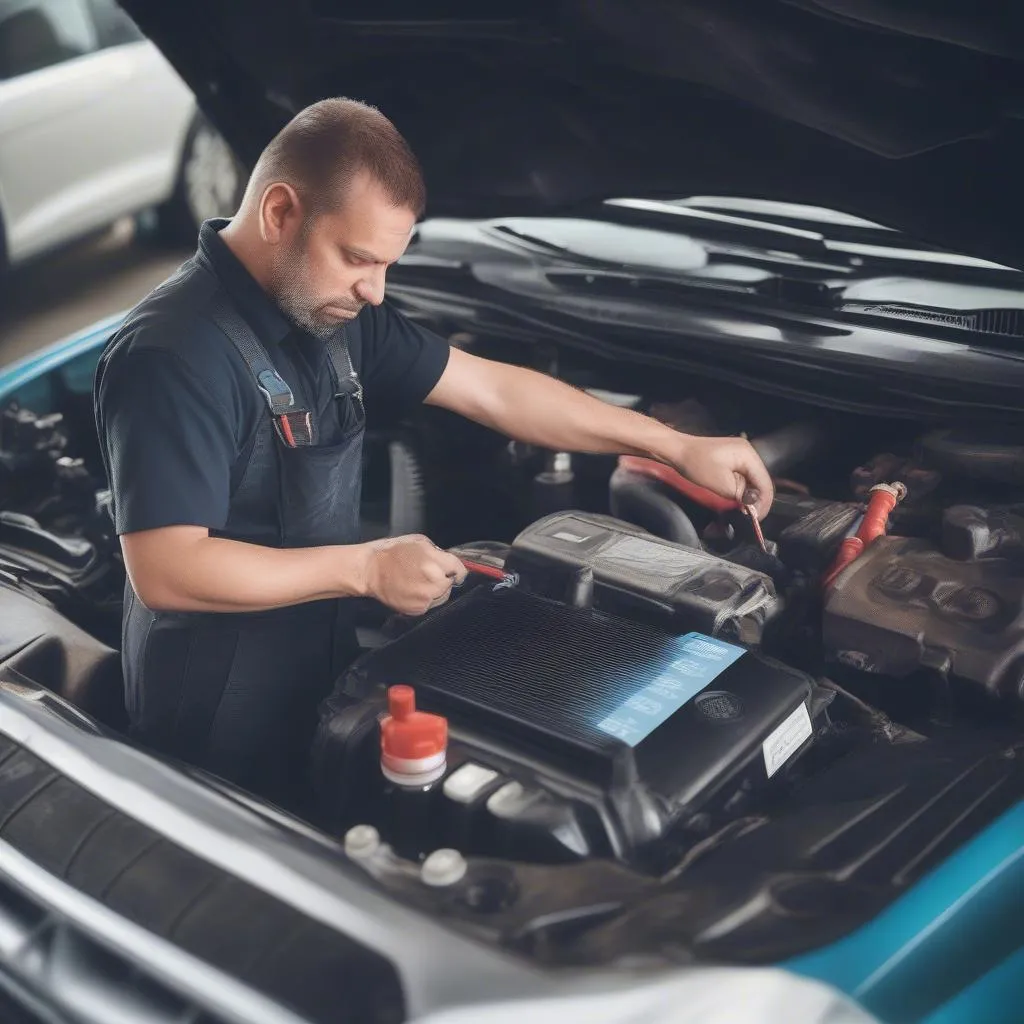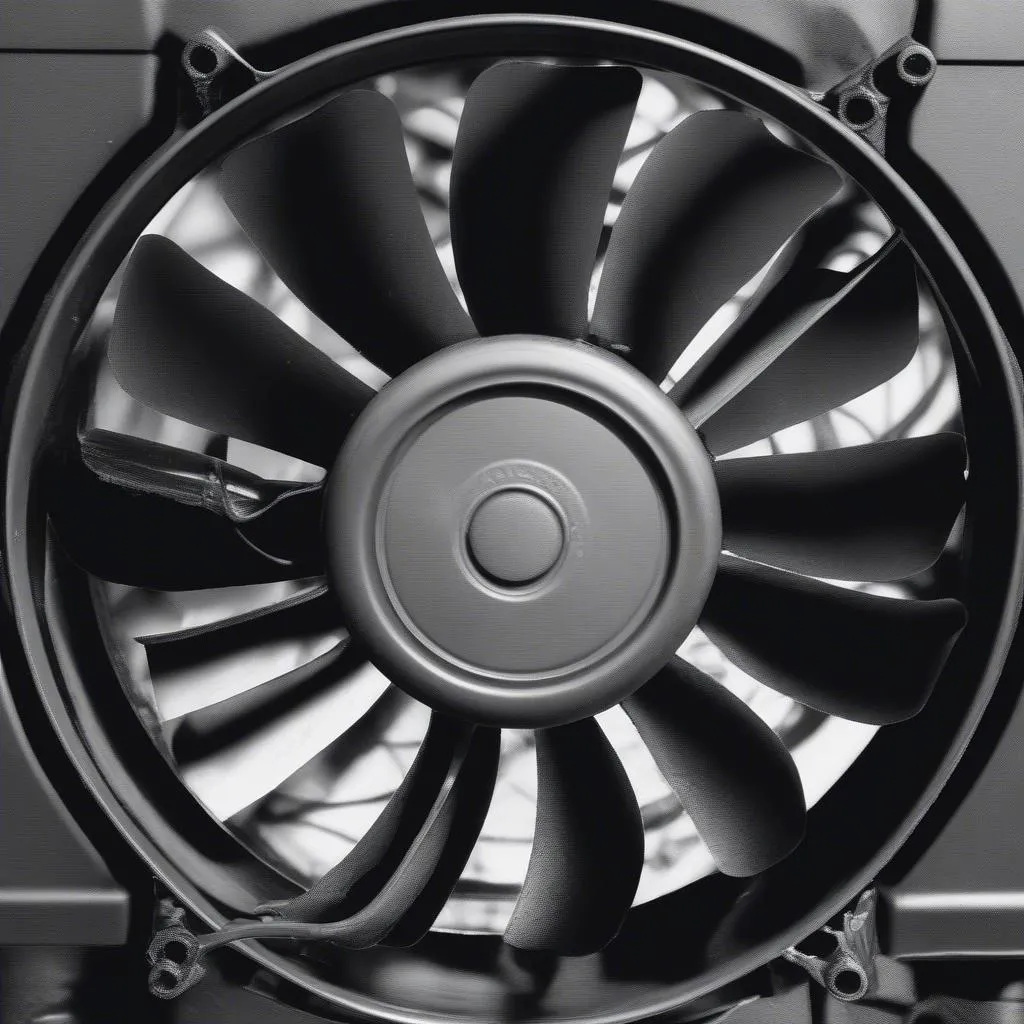Have you ever been driving down the road and suddenly noticed your car’s temperature gauge creeping up, even though you’re not stuck in traffic? It’s a scary situation, and you might be wondering if your car is about to overheat and leave you stranded. Don’t worry, you’re not alone. Many car owners experience this issue, and it’s often caused by a few common culprits. This article will help you understand why your car might overheat only when driving and what you can do to resolve the problem.
What Does “Car Overheating Only When Driving” Mean?
This issue means your car’s engine is getting hotter than normal only when the vehicle is in motion, but not when it’s idling. This is a common problem, especially in vehicles with older engines. There are several reasons why this might be happening, and it’s crucial to understand the root cause for a proper solution.
The Most Common Causes of Car Overheating When Driving
1. Low Coolant Levels
The coolant in your car’s cooling system plays a critical role in regulating engine temperature. If the coolant level is low, it can cause the engine to overheat, especially under heavy load or when the engine is working harder, such as when you’re driving. Think of your car’s coolant as the blood that keeps the engine’s veins cool. If the veins are low on blood, the engine will start to overheat.
- How to check your coolant level: Open the hood of your car and locate the coolant reservoir. It’s usually a white or yellow plastic container with a cap.
- How to fix low coolant: Top off the coolant reservoir with the correct type of coolant. You can usually find this information in your car’s owner’s manual. A mechanic can help you diagnose any leaks and repair them, if necessary.
- What if you see coolant leaking? If you notice coolant leaking from your car, don’t ignore it. A leak could be a sign of a more serious problem, such as a cracked hose or a damaged radiator. Take your car to a mechanic as soon as possible to get it checked out.
2. Faulty Water Pump
The water pump is responsible for circulating the coolant through the engine. If the water pump fails, the coolant won’t circulate properly, and the engine can overheat.
- How to know if your water pump is bad: A loud noise coming from the engine can indicate a bad water pump, as it might be making a grinding noise or rattling.
- How to fix a faulty water pump: A mechanic needs to replace the water pump. This is a more complex repair, but it’s necessary to keep your engine running smoothly.
- Why a faulty water pump can cause overheating: Think of the water pump as the heart of the cooling system. If the heart isn’t pumping the blood effectively, the engine will overheat.
3. Clogged Radiator
The radiator is responsible for dissipating heat from the engine. If the radiator is clogged with debris, it can’t do its job effectively, causing the engine to overheat.
- How to diagnose a clogged radiator: You might feel a buildup of heat in the radiator if it’s clogged.
- How to clean a radiator: It’s best to leave this task to a mechanic who can safely clean the radiator without damaging it.
- Why a clogged radiator leads to overheating: If the radiator is clogged with dirt or debris, the heat can’t escape, causing the engine to overheat. This is like a clogged artery in your body – the blood can’t flow freely, and the body overheats.
4. Faulty Thermostat
The thermostat controls the flow of coolant through the engine. If the thermostat is stuck closed, the coolant can’t circulate properly, and the engine can overheat.
- How to identify a faulty thermostat: If you suspect the thermostat is faulty, a mechanic can run diagnostic tests to confirm its function.
- How to fix a faulty thermostat: Replacing the thermostat is relatively simple and can be done by a mechanic.
- Why a faulty thermostat causes overheating: A faulty thermostat is like a traffic light that’s always red. The coolant can’t flow freely, and the engine overheats.
5. Radiator Fan Malfunction
The radiator fan helps to cool the engine by pulling air through the radiator. If the fan is not working properly, the engine can overheat.
- How to check the radiator fan: You can listen for the fan to turn on when the engine is running. You can also try manually turning the fan to see if it’s free of obstructions.
- How to fix a faulty radiator fan: A mechanic can diagnose and replace the fan.
- Why a faulty radiator fan leads to overheating: The radiator fan is like the lungs of your car’s cooling system. If the lungs are not working properly, the engine will overheat.
6. Faulty Cooling System Sensors
The cooling system sensors send information to the engine control unit (ECU) about the engine’s temperature. If these sensors are faulty, the ECU may not get an accurate reading, and the engine can overheat.
- How to diagnose faulty sensors: A mechanic can use a diagnostic scanner to check the sensor readings.
- How to fix faulty sensors: Replacing the faulty sensor is the only fix.
- Why faulty sensors cause overheating: Faulty sensors can mislead the ECU, leading to the engine overheating. Think of these sensors as the nerves that connect the brain to the rest of the body. If the nerves are not sending the correct signals, the engine will overheat.
FAQs on Car Overheating Only When Driving
- Is it normal for my car to overheat when driving uphill? It’s common for a car to overheat while driving uphill because the engine has to work harder, but this should only be a temporary situation. If the overheating persists, you have a deeper issue to address.
- Is overheating when driving dangerous? Yes, overheating can be dangerous. It can cause engine damage if it isn’t addressed quickly.
- What happens if my car overheats? If your car overheats, it’s best to pull over to a safe location and turn off the engine. Let the engine cool down before attempting to restart it.
- How can I prevent my car from overheating? Regularly checking your coolant level, ensuring the radiator is clean, and getting your car serviced regularly can all help to prevent overheating.
- What are some signs of car overheating? Some common signs include:
- The temperature gauge rising to the “H” mark.
- Steam or smoke coming from under the hood.
- A strong, sweet smell coming from the engine.
- The engine making a knocking or clanging noise.
What To Do If Your Car Overheats While Driving
If you notice your car’s temperature gauge rising, pull over to a safe location and turn off the engine as soon as possible. Let the engine cool down before checking the coolant level. If the coolant level is low, add more coolant. If you’re unsure about the type of coolant to use, check your car’s owner’s manual or consult a mechanic.
If the engine is still overheating, you’ll need to have it towed to a mechanic for diagnosis and repair.
Tips To Prevent Car Overheating
- Regular maintenance: Ensure regular servicing and maintenance of your cooling system, including checking coolant levels and inspecting the radiator, water pump, and thermostat.
- Use quality coolant: Make sure to use the right type of coolant as recommended for your car.
- Avoid driving with low coolant levels: Always keep your coolant levels topped off.
- Address leaks: Repair any leaks in your cooling system promptly.
- Check the radiator fan: Ensure the radiator fan is working properly and is free of obstructions.
What To Do If You Suspect Your Car is Overheating?
Don’t wait for your car to overheat before taking action. If you notice any of the symptoms mentioned above, or if you suspect a problem with your cooling system, take your car to a mechanic for diagnosis and repair. Early detection and prompt action can save you time, money, and potential engine damage.
 Car overheating while driving: Checking the coolant level
Car overheating while driving: Checking the coolant level
 Car overheating while driving: Inspecting the radiator fan
Car overheating while driving: Inspecting the radiator fan
Car Overheating Only When Driving: A Conclusion
Car overheating is a serious issue that can cause significant damage to your vehicle. Understanding the potential causes of overheating and taking proactive steps to prevent it can save you a lot of hassle and expense.
Don’t wait until your car overheats to address the problem. Contact our team of experts at Tech Car USA for a comprehensive diagnosis and repair. We offer 24/7 support to ensure your car is running smoothly and safely.
Contact us today via Whatsapp at +84767531508 to schedule an appointment.